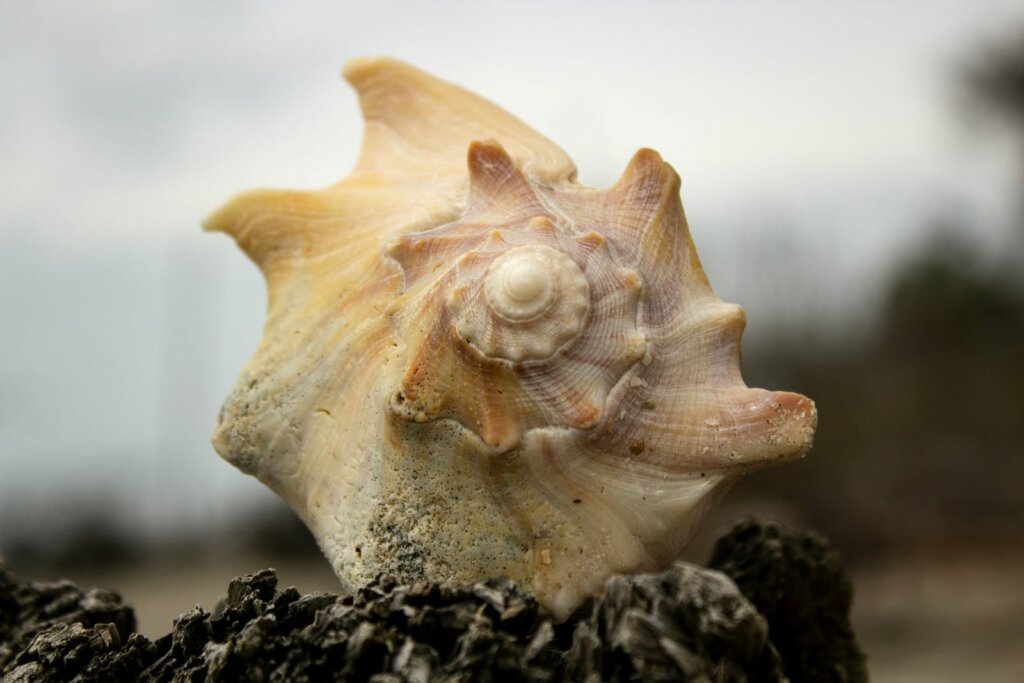Lately, I’ve been burning with shame because I don’t perceive myself doing things the “right” way. It’s … not fun and when I searched through my archives, I came across this post from January 2019. May it be a balm if you, too, are a perfectionist.
I have a confession: I make mistakes. I know, that doesn’t seem like much of a confession because everybody makes mistakes, but with the amount of shame and fear that comes up from admitting it, you’d think I stole money from little old ladies and kicked their dogs.
I notice the intensity of shame and fear shifts according to my perception of safety around making a mistake. If I make a mistake and the only person affected is me, the shame and fear levels are low. If I make a mistake at work, the shame and fear levels are high. The levels spike because my brain tells me, “I’m going to get fired! I’ll be destitute!” In my mind, the only way to stay safe at work or in my relationships is to be perfect. If I’m not perfect, something bad will happen. It’s not entirely logical but when are emotions ever logical?
A practice that helps is holding a stuffed animal that represents my inner child to my cheek like a baby and saying, “I’m here. I’m not going anywhere. I’m not ever going anywhere. I’ll meet all your needs. Nothing about you will keep me from meeting your needs.” And then I hold little me in the crook of my arm like a football and say, “I’m here. I’m not going anywhere. I’m not ever going anywhere. I’ll protect you. You can do it! Go ahead and try!” Saying those messages helped.

This dandelion is perfect because it’s complete. That will make sense in the next paragraphs. Photo by Nick Fewings on Unsplash
Something else that helps is remembering security doesn’t come from other people or an external source. Security comes from my actions and my alignment with an internal greater power. Money for instance doesn’t come solely from a job. It can come from an inheritance, winning the lottery, or some other wild source. If I lost my job tomorrow, I could borrow money, start a GoFundMe campaign, or any number of things.
When I’m stuck in perfectionism, my perspective shrinks and I think in black and white. However, the world is in color and much more nuanced than I remember. And also, what does perfect even mean? An early definition of perfect is, “Brought to consummation or completeness.” That’s coming from the 1913 Webster’s Writers’ Dictionary. As a one on the Enneagram, I’m all about finding holy perfection, and the practice for me is to remember that “perfect” doesn’t mean without mistakes, rather, it means completeness.
Completeness ultimately means unification with a power greater than myself, according to my spiritual tradition. I meditate and live my life in such a way that I’m moving closer and closer to a divine entity. I’m trying to unite and merge with something much subtler than I am. When I’m stuck in perfectionism, I lose sight of my journey and instead focus on a snapshot in time. I forget I’m learning and growing. I forget mistakes are an integral part of the process.
Will I still make mistakes? Yes. Will I still beat myself up about them? Probably. But more and more I’m using tools to come out of the shame spirals, to love myself, and to be in the space of acknowledging that “perfect” means not living up to a standard set by myself or someone else. Instead, perfect means complete.
I dream of a world where we remember in our quest to be perfect, really we want safety, peace of mind, and completeness. A world where we realize we are all moving toward something whole and unified. A world where we understand it’s OK to mess up because it serves us in our journey toward wholeness.
Another world is not only possible, it’s probable.
On the heels of my post from last week about making new milestones, the phrase that keeps coming to me is, “Let go of the way you think things are supposed to be and embrace what is.” That’s a big one for me because I have a lot of “supposed tos.” Everything from I’m supposed to have fewer gray hairs to I’m supposed to be wealthier. Where those “supposed tos” came from I couldn’t say but they’re rolling around in my head.
Those “supposed tos” aren’t neutral or ephemeral either. They aren’t something I say, “Oh well!” about. They cause damage because when things don’t match the vision in my head, I feel angry/sad/resentful/disappointed. But it’s all self-inflicted! I’m the one that set myself up for those feelings! You’d think I’d learn by now not to do that to myself, but no. This whole year has been an extended lesson in letting things unfold as they will and embracing what is, not what I think is supposed to be. How do I do that? I’m still learning (obviously) but what I’ve come to is two parts. The first is surrender.
My spiritual teacher says, “Human beings and other created beings perform a multitude of actions. The ultimate action, however, is … total surrender.” Total surrender means aligning my will with my higher power’s will. Total surrender means recognizing I am an actor in this world, not the general manager of the universe. In other words, it’s saying, “OK” to whatever life is throwing at me. I don’t have to like it but I do have to accept it.
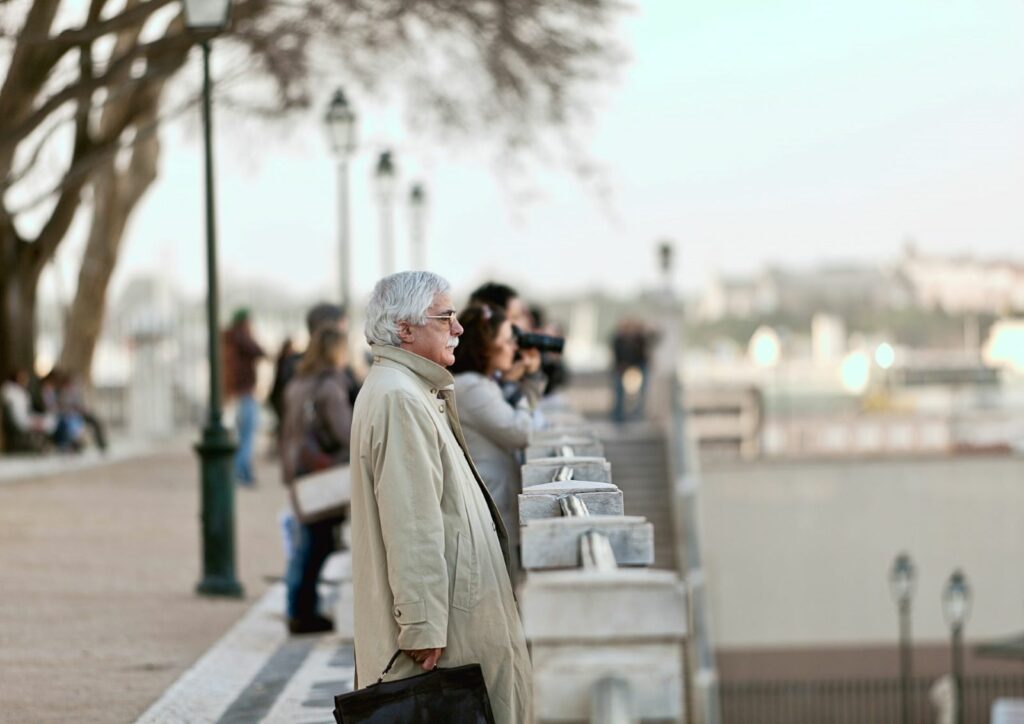
Maybe it’s already the way it’s “supposed” to be. Photo by Helio Dilolwa on Unsplash
The other part is staying present. Ram Dass says in his famous book Be Here Now:
“[I]f you set the alarm to get up at 3:47 this morning and when the alarm rings and you get up and turn it off and say: ‘What time is it?’ You’d say, ‘Now. Now. Where am I? Here! Here!’ then go back to sleep and get up at 9:00 tomorrow. Where am I?? Here! What time is it? Now! Try 4:32 three weeks from next Thursday. By God it is – there’s no getting away from it – that’s the way it is. That’s the eternal present. You finally figure out that it’s only the clock that’s going around … it’s doing its thing but you – you’re sitting here, right now, always.”
Another quote from Ram Dass: “What are you doing? Planning for the future? Well it’s all right now but later? Forget it baby, that’s later. Now is now. Are you going to be here or not? It’s as simple as that!” Being here, now means not only enjoying the present moment but accepting it’s exactly how it’s supposed to be, gray hairs and all.
I dream of a world where we let go of our “supposed tos” and embrace what is. A world where we remember expectations only set us up for disappointment and resentment. A world where we understand as much as we have dreams for the future, we are actors, not general managers, and that means it’s better for us to let things play out how they’re meant to not how we think they’re supposed to.
Another world is not only possible, it’s probable.
This has never happened to me before but last week a chestnut-backed chickadee pair flew to my living room window. One of them chirped at the sill as if it was talking to me directly. I exclaimed in delight at this tiny bird watching me as I watched it. The encounter reminded me of the power of joy. To that end, I want to reshare a post from a solid 10 years ago.
A few weeks ago, I listened to a radio show by Radleigh Valentine and he said on average people laugh 15 times a day. Fifteen times! And then he asked, “Do you remember if you laughed at all yesterday?” He pointed out it’s easy to remember the unpleasant things – the times we’re sad or scared or anxious – but the joyful times, the laughing times, are easier to forget. He encouraged his listeners to take note of when they laugh, to see if it adds up to 15 times. And then he said something really interesting: Plan for joy.
When he said, “Plan for joy” I wanted to pause his radio show so I could take that in. It hasn’t occurred to me lately I would need to plan for joy – I assumed joy would sort of happen if I bumbled around in my life. But you know? That’s not true – I mean, sure, I stumble across joy every once and a while like an adventurer coming into a clearing – but it wasn’t necessarily something I planned for. I assumed I’d experience joy once my life was peachy keen – when my financial situation improved, the love of my life came along, etc. I think you know this already, but joy is the quiet moments, the small events that we may not remember long after they happen.
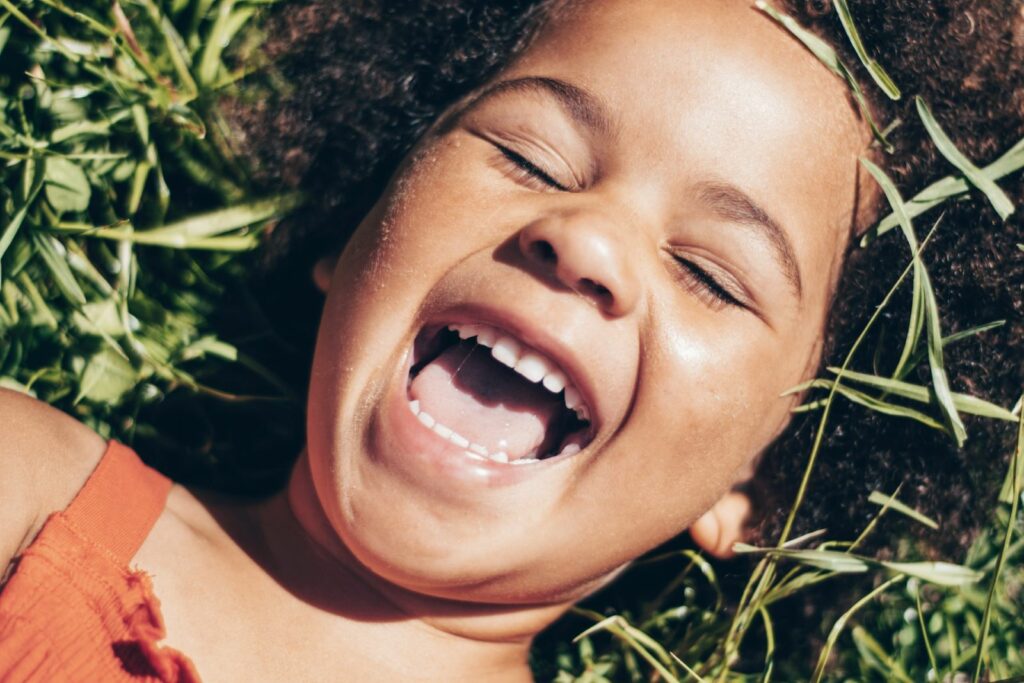
More of this. Photo by Mieke Campbell on Unsplash
Joy is having a friend call you up spontaneously asking to hang out. It’s laughing along with a television show. It’s finding out the book you put on hold at the library has become available.
Joy can be spontaneous but it can also be planned and that’s what struck me the most about Radleigh’s show. In an interesting juxtaposition, I had a powerful therapy session this week. I went from fearful, anxious, and insecure in one moment to laughing, goofy, and joyful in the next.
My therapist asked me to recall a moment I felt joyful, loved, and appreciated and then embody it. She asked if a movement or sound accompanied joy. It did – joy for me looks like strutting with my toes flexed and my heels out singing along to, “Let’s go fly a kite” or Life of Brian’s “Always look on the bright side of life.”
What amazes me is no matter how icky I feel, strutting around my cottage and singing “Always look on the bright side of life,” automatically puts a smile on my face and lifts my mood. I can be melodramatic and negative but there is also joy to be found at those times. Joy is not winning the lottery or buying a new car, it’s humming to myself while I walk, it’s remembering all the times I laughed yesterday, it’s making an active effort to improve my mood because I am continuing to plan for joy.
I dream of a world where we remember we can access joy at any time. A world where we all have that one song that brings a smile to our faces. A world where we remember the number of times we laughed yesterday. A world where we not only experience joy, we continue planning for it.
Another world is not only possible, it’s probable.
This morning I dreamed a seashell the size of a baby whale was sucked back into the ocean, despite my best efforts. I held on to the rim of the seashell and tried to swim back to shore with it. Two-story waves kept crashing over my head leaving me gasping for air. Eventually, I gave up because I knew if I didn’t let go, the riptide would pull me so far away from shore that I wouldn’t be able to swim back and I’d drown. I released the shell and crawled back to the beach exhausted, relieved, and disappointed as this shell I’d wanted so badly slipped further and further away from me.
I’m sure there are many layers to unpack with the dream but I’m going to share about the most obvious. It’s hard for me to let go. I will literally water a dead plant. The way this shows up in my relationships is I’ll keep holding on long past the point where it’s wise. I may not have heard from someone in months but I’ll still text them and say, “Hey, it’s been a while. Let’s catch up,” or, “I’d love to see you soon. Are you busy next week?” Despite not hearing anything in return, I’ll try again.
I do this because when I love someone, I really love them. I forgive them for their flaws, show understanding for what they’re going through, and accept however they want to show up in the relationship. I do this because I focus on the good times, the times we were close, the times when the relationship was working, and so it’s hard for me to accept the current reality where I have no clue what’s happening in their lives. It’s painful, really painful. What helps me is remembering that just because the relationship is dead doesn’t mean it didn’t matter.
Jung said, “The meeting of two personalities is like the contact of two chemical substances: if there is any reaction, both are transformed.” We were both transformed and on my end, every relationship leaves a mark. I wrote about this in my unpublished romantic comedy. The main character is talking about romantic love in the quote I’m about to share but the sentiment applies to every sort of love. I’ve changed the wording a bit so it fits with this blogpost:
“She expected falling in love to feel like a bomb – explosive, undeniable, irrevocably changing everything. Instead, falling in love was more like a leaky bathroom faucet, the slow and steady drip of water eventually wearing away the porcelain until it left an indelible mark. For better or for worse, the person now had a permanent space just for them.”
Sometimes that permanent space is like a scar, a reminder of what was, and other times that permanent space is like an internal organ, active and functioning. I often long for the scars to turn into organs but they very rarely do.
I opened this post writing about letting go and that’s what I’m doing here. I’m acknowledging most scars remain scars and longing for what was doesn’t serve anyone. Who I am in the present moment deserves to spend time with other people who make an effort for me in the present moment. Otherwise, it’s like I’m holding on to a giant seashell that’s destined for the ocean.
I dream of a world where we’re able to let go of old relationships and the dreams we had for those relationships. A world where we understand everyone we love has a permanent space in our psyches but sometimes that space is a scar. A world where we recognize sometimes the best thing we can do for ourselves is let someone go.
Another world is not only possible, it’s probable.
What follows is a repost from 10(!!) years ago so not all of the examples are relevant anymore. For instance, I no longer have a neighbor who plays loud music, nor am I waiting for my passport in the mail. I’m also far less anxious and melodramatic but the general wisdom about not spinning out and attaching a story to an emotion still applies. Enjoy.
I had a very interesting conversation this week with a friend. He said there’s a difference between feeling an emotion and attaching a story to it. For instance, I may be sad about losing a relationship, which is a natural emotion, but what makes it worse is the story I tell myself on top of it such as, “I’ll be alone for the rest of my life,” “No one will ever love me the same way,” etc. I can compound an emotional state by adding a story and really working myself into a tizzy.
What’s hard for me to do is let the emotion go through me. I’ve spent a good chunk of my life doing what I could to not feel, to avoid feeling my feelings at all costs, to keep them at bay because I was afraid of feeling the feeling. In my mind, it was better to not feel angry, sad, lonely, etc. in the first place. So now that I’m sober (i.e., actually feeling my feelings and not trying to numb out), I still have a hard time letting my emotions pass through me, precisely because I can drag them out by adding a story to them.

Can we let things move through us like the wind blowing grass? Photo by Abdallah Kokash on Unsplash
The emotion turns into a big dramatic thing. I make it so much worse by piling on untruths such as, “I’ll feel this way forever,” or, “Things will never change.” There’s a lot of “always” and “never” in my stories. And a whole lot of catastrophizing where I jump from, “My neighbor is playing loud music,” to, “Oh my God, I need to move somewhere else!”
I’ll admit that much of this has to do with the fact that I’m anxious and melodramatic. For those of you who aren’t, you probably can’t relate to what I’m writing about. But for those of you who can, I want to point out how these stories and the catastrophizing make the emotion so much worse than it has to be. If I allowed myself to feel my moments of grief or loneliness, they wouldn’t last NEARLY as long.
I’m not sure what to do about all this other than to make myself aware of it. My dear friend who’s a therapist often tells me that awareness alone can make a huge difference. Maybe by understanding that I tell myself a lot of false “truths” I can catch myself in the act and remind myself they’re not the case. Just because I’m scared about not receiving my passport on time to leave for Europe, doesn’t automatically mean my boss will get pissed and fire me and never send me to Europe again. Instead, it’s better for me to stay present with what is and acknowledge, yes, I’m anxious about my passport arriving in the mail, but that’s all I get to be anxious about because nothing else has happened.
It all comes down to being present, to paying attention to what’s in front of me, and not future tripping or spinning out about what could be. There are a million things that “could be,” and when I start attaching emotion to all those possibilities, that’s when I really get into trouble. Can I let it be what it is instead?
I dream of a world where we feel, process, and let go of what’s before us. A world where we stick with whatever emotion we’re feeling and not compound it by telling ourselves falsehoods. A world where we allow emotions to come in and emotions to go out, understanding the process can be fast or slow depending on how much extra stuff we throw in. A world where we just let things be what they are.
Another world is not only possible, it’s probable.
I recently took the University of Pennsylvania’s VIA Survey of Character Strengths in an effort to leverage my strengths and become happier. Marty Seligman, the father of positive psychology, said to be happier we can use our top strengths and apply them to something we don’t like. For instance, if you don’t like filing your taxes and your top strength is humor and play, you can gamify filing your taxes.
My top strength completely shocked me. When the result came in, I texted a friend and said, “Is this right? This doesn’t seem right.” My top strength? Bravery and valor. BRAVERY AND VALOR. UPenn defines this as, “You are a courageous person who does not shrink from threat, challenge, difficulty, or pain. You speak up for what is right even if there is opposition. You act on your convictions.” OK, well, when you put it like that, it’s true. And then the universe answered my question about whether that’s my top strength because independently, unprompted, someone told me over Facebook that I’m like a first responder always running toward the fire, that I don’t shy away from issues. Message received!
I don’t know how to apply bravery and valor to filing taxes but what I am applying this character strength toward is other things, namely my relationship to fear itself. Our society has a very combative relationship to fear. We say, “Screw fear! Don’t let fear stop you! If you’re scared, do it anyway!” We think of fear as a bad thing, something to push away or bulldoze over. I get it. Me too, but it’s not really working for me anymore. I find that instead of feeling less afraid, fear is taking over and I’m falling into a fugue state where I can’t concentrate on anything because there’s not anything to do. In other words, my fears are not around things like ice skating or public speaking. They’re abstract.
Telling myself all the reasons why I shouldn’t be afraid, also doesn’t help because I become irrational when I’m afraid. I thought about it and asked, “What would approaching this issue from my top strength of bravery and valor mean?” And you know what it means? Facing fear head-on without trying to fix, change, or solve it. I’ve been setting a timer for 15 minutes for the past few days and just letting fear flood my body. I’m not trying to soothe myself, push it away, or do anything. I’m letting it be. I’m saying to myself, “It makes sense that you feel afraid. It’s OK. I’m here. It’s safe for you to feel afraid.”
No one has ever said that to me in my life. It’s safe to feel afraid? I don’t have to run from this emotion just like I don’t run from anger and sadness? I’m finding that’s exactly what I need. Like I wrote about a month ago, change requires not only awareness and action but also acceptance. Before I can do anything about the fear, I need to feel it. I need to accept that it’s there, not minimize the emotion or declare all the reasons why it’s invalid. I can’t speak for everyone but for me, I perpetually want a container. I want a safe space to fall apart, to unravel. I want someone to witness me with love and neutrality. It’s one of the reasons I love therapy so much.
However, I only talk to my therapist once a week. What about the other 167 hours? I am the only person who is with me constantly so the best thing I can do is become a safe space for myself. It feels like the most terrifying thing I can do, let myself feel afraid, and yet doing so I feel more settled, more present, more adult because I’m not letting a scared inner child take over my body. I’m giving myself the space to feel my feelings like a good parent. In other words, I’m being brave. And wouldn’t you know it, I do feel happier.
I dream of a world where we stop trying to force ourselves to feel one way or another. A world where we create a safe container to feel all of our emotions. A world where instead of making fear an enemy, we recognize there’s a reason we feel scared. A world where we let ourselves feel afraid because we know it’s safe to do so.
Another world is not only possible, it’s probable.
P.S. If you take the strengths test, I’d love to hear your results.
Sometimes I have temporary amnesia in that I forget how much can change in a day, an hour, an instant. If I feel blue, I think I’ll always feel blue. If I feel happy, I think I’ll always feel happy. I pretend a state of being is permanent when in reality, it’s anything but. For instance, I’ve been hawking my bank account, just waiting for payments to come in. I started to fret about what I would do if I didn’t get paid, the steps I would take. And then, cha-ching! The money arrived! Hallelujah! I literally danced with joy.
But the opposite also happens. I can cruise along, feel that all is right in the world, and then receive a text message that a friend died. Before receiving the news, I could have been smiling, but after reading the text I would start crying. Emotions are like this. They’re energy in motion. I rarely remember that though because I’m either chasing the happy, feel-good emotions, or I’m pushing away the sad, feel-bad emotions.
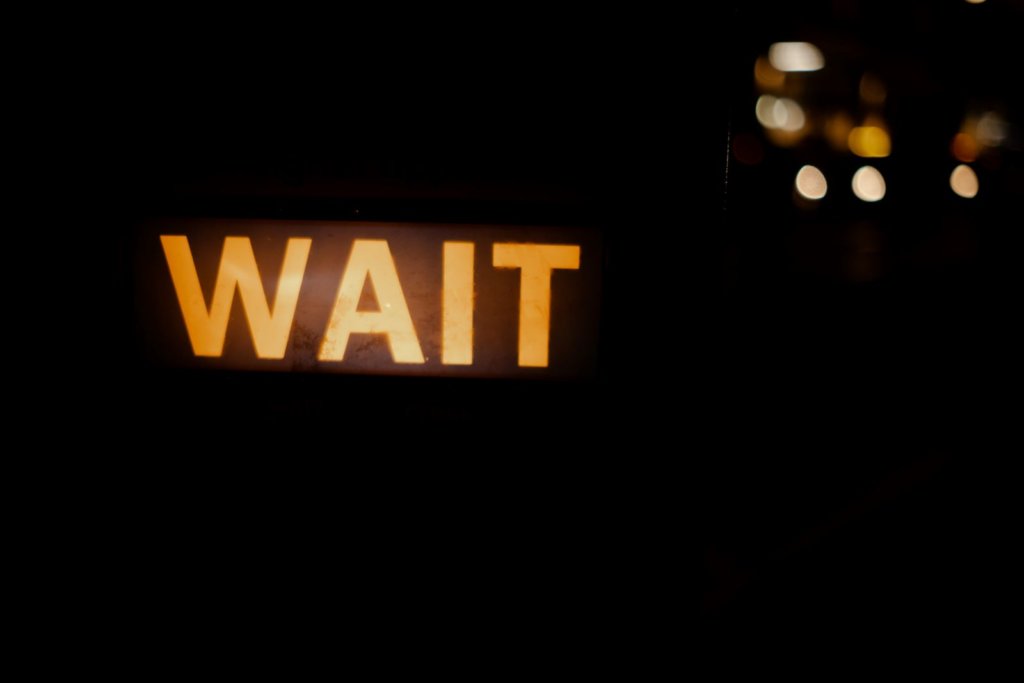
Wait it out. Photo by Semyon Borisov on Unsplash
Our society does this too. We are encouraged to buy things – shoes, a phone, a car – or use drugs – alcohol, weed, ketamine – to chase away the pain. Our brains encourage this sort of behavior because they are in a perpetual quest for more dopamine, the feel-good, “more” molecule. But instead of trying to create a feeling, what if we just … waited? What if we instead recognized everything, EVERYTHING we’re feeling is temporary?
The temporary nature of life is on my mind because I wasn’t speaking hypothetically about receiving a text message notifying me of a friend’s death. That happened. I saw him on a Zoom call and then two days later he died of Parkinson’s. It’s surreal to me how quickly things can change. And my friend’s death is shaking me up because he was a staple of my childhood. Someone who was always around. I took it for granted he would continue to be, even after he got sick because I forgot everything is temporary.
My spiritual teacher says, “This expressed universe is nothing but a collection of temporary entities which are undergoing constant metamorphosis according to the sweet will of nature.” We are all temporary entities and we are all constantly changing. Nothing stays the same. Nothing. When I remember this, every emotion becomes easier to bear; every experience becomes richer precisely for its impermanence.
This isn’t a profound post, I’m not revealing a truth you don’t already know, but maybe like me, you forget. Maybe you forget the person next to you is not immortal and neither are you. Maybe you forget the pain you feel will end. Maybe you forget at any moment you can feel euphoric because you received good news. Instead of chasing after a feeling, what if we pulled back a little, practiced more detachment and surrender, and understood all we have to do is wait? Because even if it doesn’t seem like it right now, you’ll feel great again soon. I promise.
I dream of a world where we understand emotions are constantly changing. A world where we realize we can’t force ourselves to feel one way or another and we stop trying. A world where we understand if we just wait, we’ll feel great again.
Another world is not only possible, it’s probable.
In 12-step communities there’s a saying, “You’re only as sick as your secrets.” When I first heard the expression, I thought it meant secrets, along with the things you’re ashamed of, and/or the emotions and memories you’re trying to repress, will drive you to act out in your addiction. While that’s true, I’ve also learned recently that secrets can make you physically sicker. I don’t mean the stomachache when you’re hiding something from your best friend. I mean arthritis and cardiovascular issues.
In a meta-analysis, meaning a study that looked at numerous other studies, Marcus Mund and Kristin Mitte found those who repressed their emotions had significant associations with cancer and high blood pressure. There’s also a study from 1999 when Dr. Joshua Smyth assigned asthma and rheumatoid arthritis patients to write either about the most stressful event of their lives or about emotionally neutral topics. He and his colleagues found the patients who wrote about stressful life experiences had clinically relevant changes in health status at four months compared with those who wrote about emotionally neutral topics. The gains were beyond those attributable to the standard medical care that all participants were receiving, according to the authors.
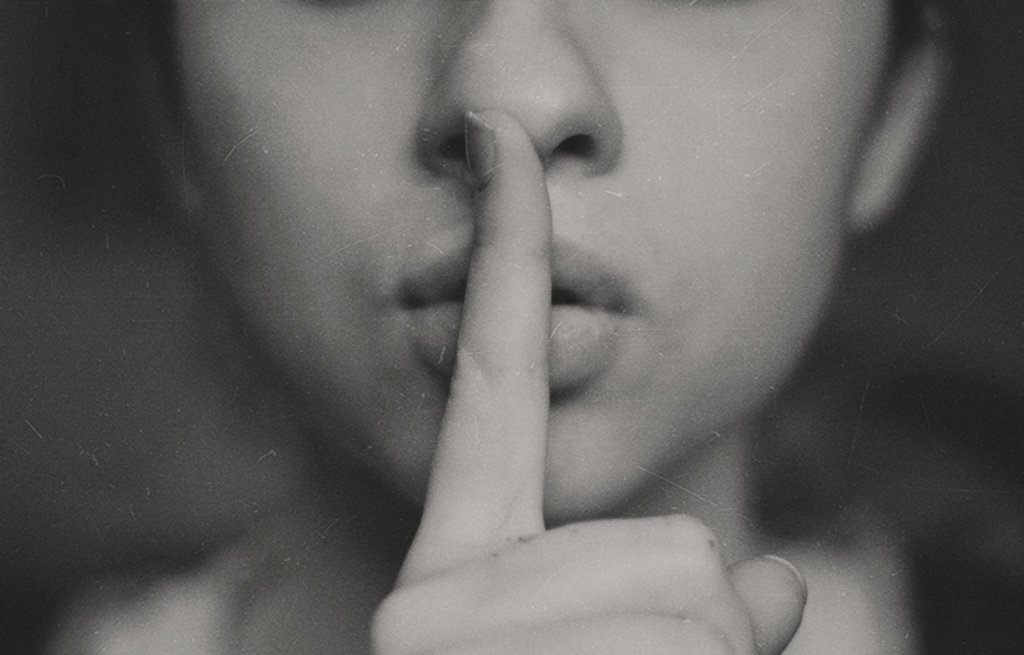
Expression, not repression. Photo by Kristina Flour on Unsplash
Meaning, just by writing about stressful events, by sharing their secrets, patients with asthma and rheumatoid arthritis were clinically, measurably, better off than people who kept their thoughts and feelings bottled up. The effects may have lasted longer than four months, but Smythe and his colleagues didn’t follow up to find out.
As someone who is extremely psycho-somatic, meaning I have a strong link between my mind and body, I already know this information. However, what is news to me is the measurable effects. Not only do people feel better emotionally when they express their internal landscape, but researchers have demonstrated their blood pressure drops, their heart rate decreases, and pain levels decline. That’s really freaking cool if you ask me. I love when science confirms something I know to be true anecdotally.
Why am I writing this post? I think it’s because there are likely people out there saying to themselves, “The past is the past. I’m over it. I don’t need to talk about it. Why dwell on something you can’t change?” For those people, my response is, “You can’t change the past, but you can change how it’s affecting your present. How it’s impacting your body. Expressing a stressful event, even if it’s just in a journal, will help you feel better physically. And you don’t have to take my word for it – researchers have found that to be true as well.”
Not only researchers, but spiritual teachers. In fact, mine says, “It is natural for all living beings to search for a way to express themselves fully. Sometimes this expression takes the form of crude physical pleasure, and sometimes that of subtle psychic pleasure.” He also says, “Repression directly affects the subconscious mind. Gradually the psychic structure is severely damaged, and finally the mind is totally changed. The result is that people are inflicted with a defeatist psychology and an inferiority complex.”
That doesn’t sound great to me. I’d rather be strong physically and mentally. I want to feel happy and free. Who knew that could happen with something as simple as writing in a journal for 15 minutes?
I dream of a world where we recognize repressing feelings and past events takes a toll on our physical, mental, and emotional health. A world where we understand it’s our innate desire to express. A world where we realize we’ll feel stronger and happier if we express what’s going on for us. A world where we understand we are only as sick as our secrets.
Another world is not only possible, it’s probable.
Sometimes I have the expectation of myself that I’ll function like a robot. That no matter the circumstances, no matter how I’m feeling, I’ll be able to accomplish XYZ regardless. And if I’m not able to accomplish XYZ, then I beat myself up and make meaning from it like, “You’re so lazy.” This may sound silly, but what I often forget is that I’m a human and human beings are not robots. We aren’t able to show up the same way every day.
Something my therapist says is, “Everyone is doing the best they can at every moment and sometimes their best sucks.” Yep. I’m doing my best every day and sometimes my best sucks. Sometimes my best entails lying in bed under a pile of blankets watching terrible television because I can’t motivate myself to contact potential new clients. Sometimes my best means my bathroom mirror has flecks of toothpaste on it because cleaning it feels like too much effort.
I see this lack of respecting the natural ebb and flow of each person reflected in society. The other week I wrote about how people are turning into small children, throwing tantrums in grocery stores, and yes, it’s because many of us struggle with feeling our feelings, but I also think it’s because in the U.S. anyway, we forget we’re human and instead we’re being asked to function as if we aren’t. Your kids are home from school? You should be able to accomplish as much work as if they weren’t! Your colleague is out sick with Covid? You should still be able to meet that deadline! Um, no.
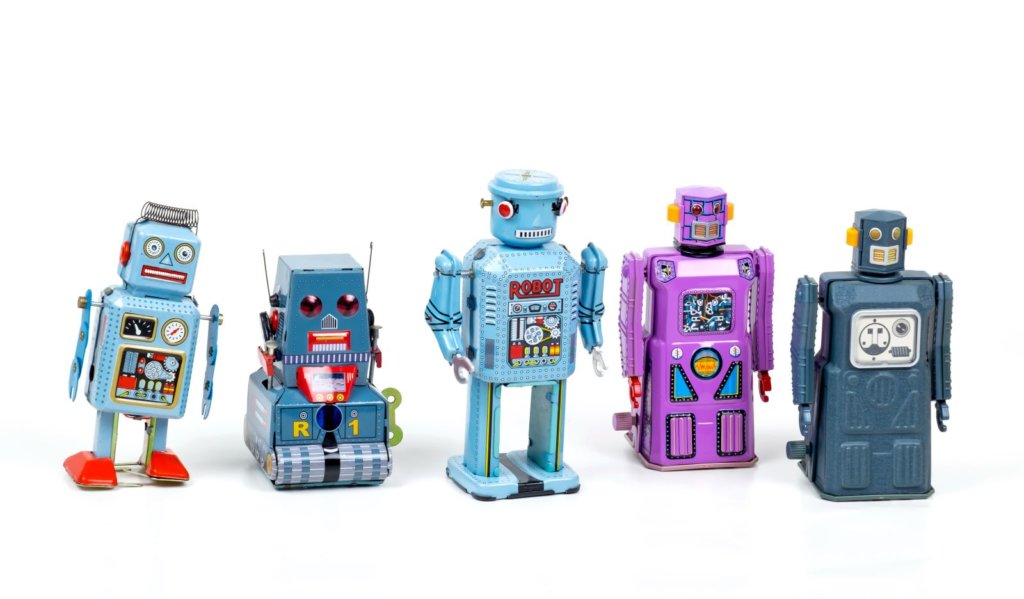
They’re cute, but let’s not aspire to be like them. Photo by Eric Krull on Unsplash
The expectation that life can or will continue as normal even when circumstances change is absurd. We are not robots and it’s not feasible to “power through” everything. Furthermore, maybe we’re not supposed to power through! Maybe we’re supposed to be smart, adaptable human beings that fluctuate day by day. This is something living with a chronic illness teaches me over and over again. Some days I can go for a swim, write for hours, clean my house, make dinner from scratch, and connect with friends. And other days I’m only capable of getting dressed and heating up a premade meal. Both happen and yet I beat myself up on the days I don’t have energy to do as much as I’d like. A lot of it has to do with internalized capitalism, but it’s also because of the expectations I place upon myself.
What if instead I treated myself with compassion and understanding? What if instead I recognized that at some point the bathroom mirror will get cleaned and inspiration will strike to contact potential new clients? Because that always happens. It reminds me of a quote from the late, great, Thích Nhat Hạnh who said, “No one is more worthy of your kindness and compassion than you are,” and also, “Real love means loving kindness and compassion, the kind of love that does not have any conditions.”
Real love for myself and others means recognizing we each have good days and bad days. It means understanding there’s a natural rhythm and cycle to life. It means acknowledging as much as society wants us to be robots, we aren’t. We’re human beings and human beings fluctuate, make mistakes, and have limitations. For better or for worse, we show up differently every day and not only is that OK, it’s natural, normal, and to be expected because again, we’re not robots.
I dream of a world where we treat ourselves with love and compassion. A world where we reduce the expectations we set for ourselves. A world where we understand our best will change from day to day. A world where we remember we aren’t robots.
Another world is not only possible, it’s probable.
Can we take a moment and acknowledge how hard it is to be alive? And in particular to be alive right now? I keep thinking about this New York Times article detailing how in the retail world, adults are acting like children because they are unable to cope with the stress of life. Grown men are screaming because the grocery store is out of the cheese they want. Women are becoming inconsolable because their packages are delayed. In the U.S., and likely other parts of the world, we are not doing well, emotionally speaking.
Many of us don’t know how to handle our feelings and instead turn to something external to cope. For instance, at the start of the pandemic, Forbes posted an article about how people are consuming more alcohol, smoking weed, playing video games, eating a lot of junk food, binge-watching Netflix and adult films more than ever before. But that trend hasn’t stopped. More recently in September 2021, USA Today shared that nearly 1 in 5 Americans are heavily drinking. Heavy drinking is defined as four or more drinks per day for women and five or more drinks per day for men, twice in a single week.
When life feels hard, give us something to feel better. And I get it, I really do. I’m an addict in recovery. I know all about turning to something external to feel better because I did it for years. But does repressing or suppressing emotion work? Ever? For anyone? Or instead are people turning into small children because they’re no longer able to be instantly gratified?
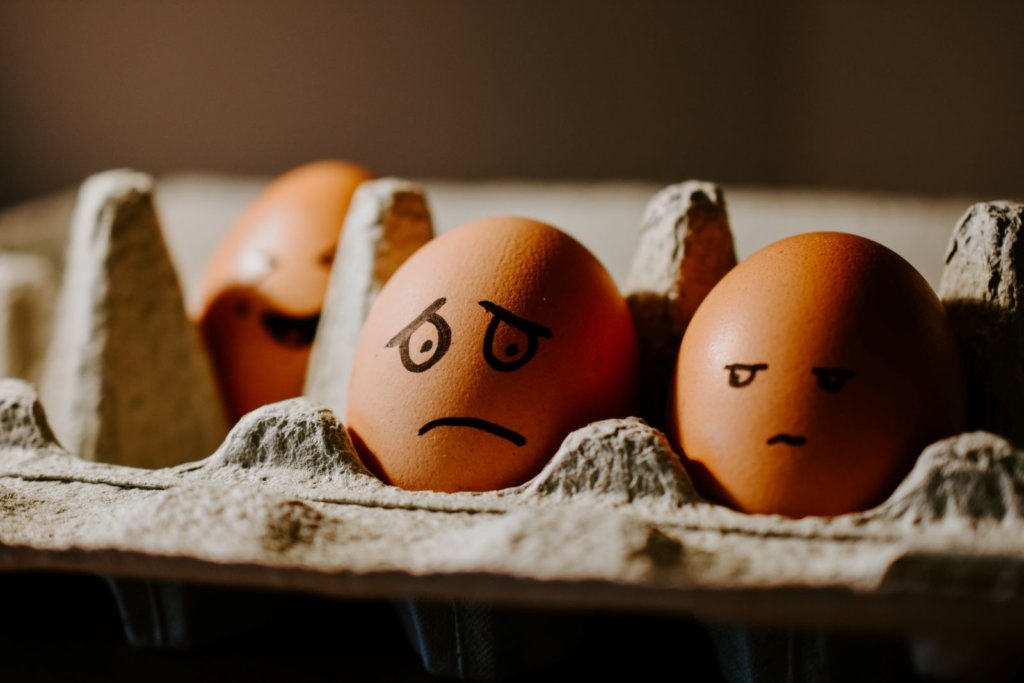
These eggs! So expressive. Photo by Hello I’m Nik on Unsplash
Emotions are meant to be felt. They are a form of energy in our bodies that must be moved, must be expressed. When there’s a loss, the best thing to do is to cry, not get drunk. Tears literally make you feel better because they release the chemicals oxytocin and endorphins. If you’re angry, don’t scream at a grocery store clerk, express it in a safe way by yelling at an empty cup that represents the person who crossed a boundary, or writing a letter you never send, or whatever. Taking out your anger on someone as collateral damage is not OK.
We’ve forgotten how to feel our feelings in this culture because we have so many quick fixes at our disposal. But this pandemic is doing away with those quick fixes, at least some of them. Are we crying about that? Are we weeping for our losses, not only deaths, but the loss of certainty, connection, freedom, normalcy, and more? I know for some people it’s hard to cry or it may not feel safe to cry. If that’s you, you’re not alone. I highly recommend checking out the Westfeldt Institute for Emotional Hygiene because this is what they specialize in – emotional regulation. You can also listen to season one of the podcast “The Healing Feeling Shit Show.”
Feeling your feelings not only helps you, but it helps others. The world needs more adults. We’re witnessing what happens when inner children are at the helm and it’s not pretty. Being an adult is not only about making money, it’s also knowing what to do when you feel scared, angry, or sad. I have zero interest in being screamed at because I looked at someone funny and I have zero interest in retail clerks consoling a customer because the shop ran out of dish soap. Can we not? Can we instead feel our feelings? It’s not always easy but it’s worth it.
I dream of a world where we practice emotional regulation in healthy ways. A world where we feel our feelings as they arise. A world where we take care of ourselves and each other by acting like adults when life gets challenging. A world where we know what to do when we have a feeling.
Another world is not only possible, it’s probable.
